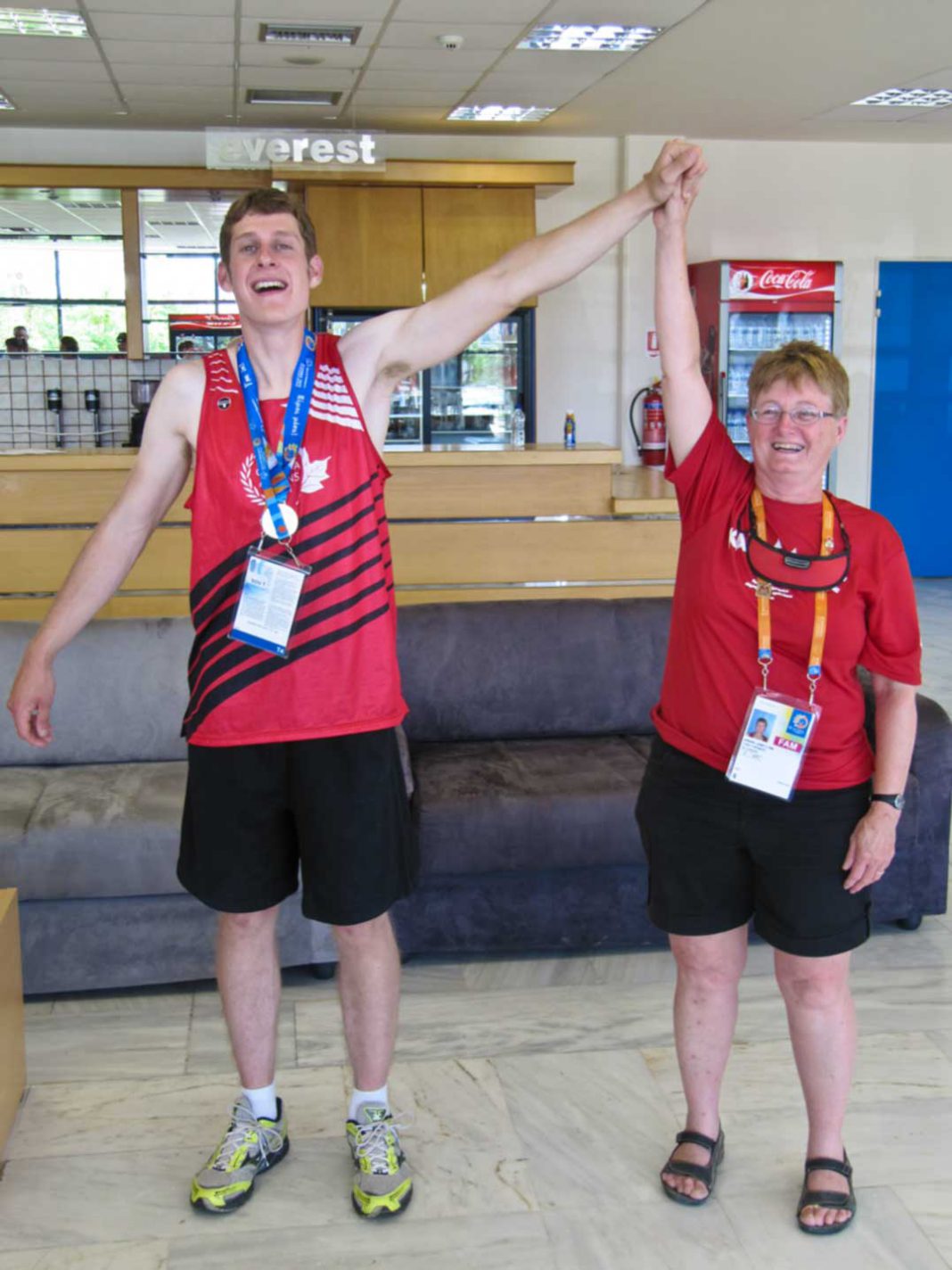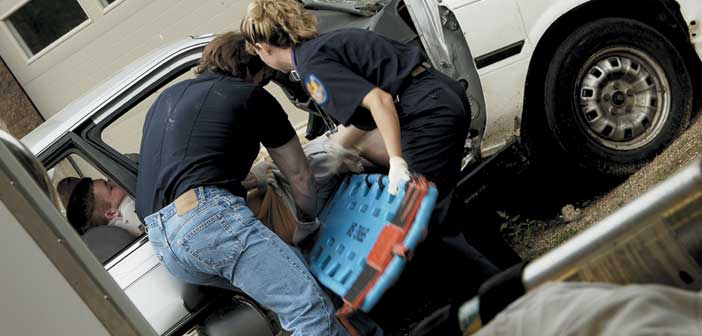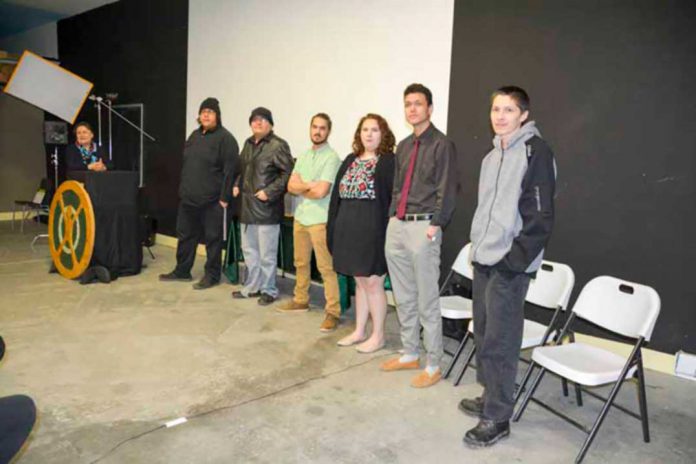MINDEMOYA—Like many parents, Janet Anning’s early exposure to volunteerism came as part of her parental duties. Like many parent volunteers she stepped up to do her part in minor hockey, and like so many dedicated and passionate people, her volunteerism extended long after her own children had “aged out.” But her enduring passion has been working with Manitoulin Special Olympics athletes, an association that grew out of her previous employment with Manitoulin Community Living. What fuels her passion? Smiles.
“I used to volunteer with minor hockey when the kids were in things,” she recalled. “I volunteered with minor hockey from about 2001 up until 2013.” Her children had finished minor hockey a couple of years before. “I became involved in the Speak Out program as a facilitator and I continued on in that role until 2013.”
Hockey Canada developed the Speak Out program in 1997 in order to “educate and prevent bullying, harassment and abuse in hockey across Canada. Since then, a comprehensive program of training, education and awareness of bullying, harassment and abuse has been accomplished through workshops, resource materials and branch and association initiatives.”
“The program focused on coaches, managers, safety people, parents, players and administrators,” she explained. As a facilitator she helped put together workshops and education sessions.
Ms. Anning went to work for Manitoulin Community Living in 1989 and got to meet “some of the most loving people you ever want to meet.”
It was around 2006 that the happenstance of a bowling alley opening in M’Chigeeng that served as the catalyst to get her involved in the Special Olympics program. “There had been a program on the Island in the past, with Greg and Leanne Lockeyer, but it had kinda petered out,” she recalled. “Then the bowling alley opened up.”
Bowling was the ideal entry point for the Community Living crew to engage with the Special Olympics. “It is something that has something for every level for people to get involved in,” she said. “It takes in all the abilities. So that is what we decided to start up.”
It was during the bowling outings that Ms. Anning began to notice how eyes were lighting up with smiles among the bowlers.
“It extended from there,” she said. “Fastball, curling with Judy Olacke, it just kept growing every year. It never stopped.” Manitoulin Special Olympics went on to became the amazing success it is today. “I had no idea that it would grow the way it did. All we were doing was to try and have a service here for the people we served.”
Things really began to pick up steam when they had their first track meet in 2006. With each succeeding year, the abilities and accomplishment levels of the Island Special Olympic athletes grew by leaps and bounds. “Every year my expectations increased, up to the world level where they are now,” said Ms. Anning. That constant raising of the bar for the athletes has seen them increase in skill level and success. “If we had just said ‘okay everybody can run a 100 metres’ and left it at that, that’s all we would have done,” she said. In order to meet those higher goals and expectations, Ms. Anning canvassed her friends, acquaintances and colleagues shamelessly. “I roped in everyone I could think of,” she laughed. Most of those who stepped up to help found themselves caught up in the infectious spirit of the athletes and remained with the program after their initial commitment was completed.
Ms. Anning is a very familiar face to a lot of people on Manitoulin through her former role as a driving instructor and she was not at all above lobbying her students to put their community service hours into the Manitoulin Special Olympics. “The students kept coming back to volunteer, long after their community services hours were completed,” she said. “Even after they went off to college and university, they would still come back to help out.”
Raising expectations and levels of sport is an expensive endeavour. Luckily for Manitoulin’s Special Olympics crew, Brother John Featherstone and his bluegrass loving family sashayed through the door to create Bluegrass in the Country, which went on to become Manitoulin Special Olympics’s sole fundraising event. Ms. Anning and her compatriots can be found bustling about the fairgrounds in Providence Bay every year. Has she become a hard-core bluegrass fan as a result?
“I wouldn’t say ‘hard-core’ but definitely a fan,” she laughs. “The bluegrass people, the musicians and the fans have been absolutely awesome. They keep coming back and asking if they can do more for us.”
A good thing too. With seven different sports in the Manitoulin Special Olympics roster, that’s seven different tournaments, at least.
“We have to get there and that costs money,” she said. “We are sending nine athletes to the nationals, that costs $1,600 per athlete. It’s a lot of money.”
So what fuels the dedication and the passion?
“I don’t know,” she said. “You meet so many wonderful people. The athletes just have so much love and dedication for their sport. It is easy for you to become passionate about it too.”
Ms. Anning said that volunteering with the Manitoulin Special Olympics is never a trial.
“Just when you are starting to get tired, a little worn down from all that needs to be done, you see how happy the athletes are to participate,” she said. “It all drops away and you feel rejuvenated. We really do get more out of it than you give. When someone gives you a hug and they smile, you see how happy they are to participate, it fills your own spirit.”
But Ms. Anning suggests people don’t just take her word for it. “Come on out to this year’s Bluegrass in the Country in Providence Bay on June 9, 10 and 11,” she said. “You can see those smiles for yourself.”





